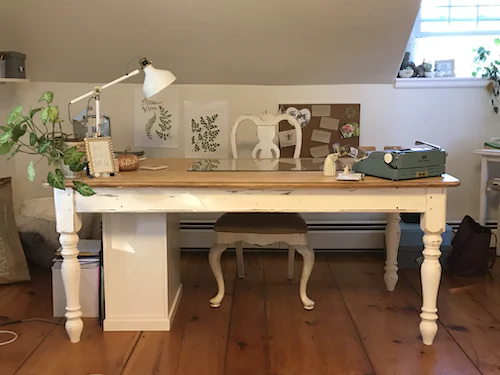“Would you tell me, please, which way I ought to go from here”
“That depends a good deal on where you want to get to,” said the cat.
“I don’t much care where…” said Alice.
“Then it doesn’t matter which way you go,” said the cat. (Alice in Wonderland, Lewis Carroll)
———–
So often, people ask HOW to get what they want. Often overlooked is the value of knowing (truly knowing), and clearly articulating, what you want.
The Well-Formed Outcome (WFO) is a coaching tool that assists people in moving toward their outcomes. It is a neuro-linguistic programming (NLP) concept, based on the premise that once we are very clear WHAT we want, the getting it becomes far easier. It is simple and powerful.
“The more precisely and positively you can define what you want, and the more you program your brain to seek out and notice possibilities, the more likely you are to get what you want. Opportunities exist when they are recognized as opportunities.” (Introducing NLP, O’Connor & Seymour.)
There are several basic elements to laying out what you want. Here are a few:
- What do you want?
- Is the outcome stated in the positive and specific/measurable?
- How will you know when you have achieved your outcome? (See, hear, feel)
What do You Want?
What is your goal, dream or outcome that you would like to manifest? Please do not filter yourself. Sometimes we will not even say what we want if we do not see HOW to get it. Let go of the HOW for today. For today, be the dreamer. (“Tell me what you want, what you really really want.” -Spice Girls)
Once you have it in mind…
State it in the Positive
Take a moment now and state the goal. Answer the question, “What do I want?” with regard to this one outcome. State it in the form of what you DO want and not what you do NOT want. Positivity is important. Our minds (and the universe) tend to ignore the words “don’t” or “not” in terms of getting what we want.
It’s understandable that many of us find it much easier to identify what we have that we wish we did not have. But in order to move forward, we must identify what forward is. There is a premise that we get what we focus upon. If we state our goals in terms of what we do not want, we are focused on the problem. When we state our goals in terms of what we do want, we are focused on the solution, the path ahead. When we focus on what we DO want, we will start to see it much more clearly and as a result, we will begin to see the opportunities arising to obtain what we want.
For example, imagine that my office is cluttered. Imagine that this is beginning to really bug me. Now, imagine what I focus on is that I HATE clutter and the office is driving me crazy. Every day I come in to my office and I say oh-my-god-this-is-awful-how-can-I-live-like-this-work-like-this-this-is-driving-me-nuts! And I continue to focus on it in this way. What do I want? To be clutter-free. Not to have such a mess. To not have to look at all this stuff! Notice how the central object in each statement, which you can hear has emotion in it, is the clutter, the mess, the stuff. It is perfectly fine to START with what you do NOT want. Just don’t state your outcome that way. The next question might help you to state what you DO want.
How Will I Know When I Have it? (Sensory-Based Terms)
 When you have your outcome fully, what will you see, hear and feel? You may also ask what will you smell and taste, if that is appropriate.
When you have your outcome fully, what will you see, hear and feel? You may also ask what will you smell and taste, if that is appropriate.
Now I can describe what I want in my office. I start to SEE open spaces, containers, labels, organized and free space; I start to FEEL peace and relaxation and energy to start my workday; and I can HEAR in my head an internal conversation of pleasure and satisfaction. Maybe I SMELL pleasant oils coming from a diffuser.
 Take a moment now and write down what you want, stated in the positive and with the sensory indicators – see, hear, feel. The more fully you imagine and describe it, the more your brain can rehearse it and notice opportunities to achieve it. This is another tip – it is useful to commit what you want to writing. The more you state it, write it down and talk about it, the more you will focus on and move toward it. Be very specific and detailed in your description. Likely there will be a physical sensation as you describe it in specific detail, as your mind and body begin to experience having what you want. This is another NLP premise — imagination and memory run the same neural pathways. Imagining in detail affects our brain and body as if we have already experienced what we want. And this also makes it far more likely that you will get it!
Take a moment now and write down what you want, stated in the positive and with the sensory indicators – see, hear, feel. The more fully you imagine and describe it, the more your brain can rehearse it and notice opportunities to achieve it. This is another tip – it is useful to commit what you want to writing. The more you state it, write it down and talk about it, the more you will focus on and move toward it. Be very specific and detailed in your description. Likely there will be a physical sensation as you describe it in specific detail, as your mind and body begin to experience having what you want. This is another NLP premise — imagination and memory run the same neural pathways. Imagining in detail affects our brain and body as if we have already experienced what we want. And this also makes it far more likely that you will get it!
In summary:
- Write down what you DO want.
- Describe it in sensory-based terms (see, hear, feel).
- Keep it in front of you and look at it daily.
If you want more on this, visit us on the Coaching Couch, March 10.







